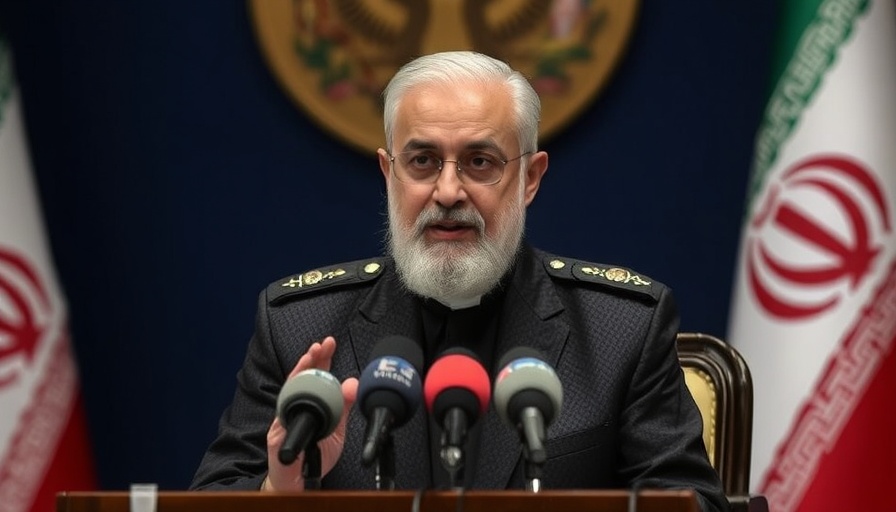
Iran's Stance Amid Rising Tensions
In a bold statement aired during a pre-recorded television interview, Iranian President Masoud Pezeshkian expressed Iran's readiness to respond "forcefully" to any aggression from the United States or Israel. This declaration comes amid escalating tensions, as both nations have been accused by Pezeshkian of attempting to "divide and destroy Iran." He emphasized that Iranians remain united in face of threats, indicating a resilience that is central to Iran's national identity.
Navigating a Complex Political Landscape
The implications of Pezeshkian's remarks go beyond mere rhetoric; they signal Iran's firm resolve in protecting its sovereignty and territorial integrity. The comment reflects a broader trend in Iranian politics where leaders often evoke national unity against external aggression. This can also be seen as a strategic maneuver aimed at consolidating internal support amidst economic challenges faced by the country.
The Broader Geopolitical Context
Iran's warnings come against a backdrop of heightened US-Israel collaboration, particularly in military and intelligence-sharing sectors. Analysts note that such partnerships have often irritated Tehran, leading to a cycle of hostility. For example, recent joint military exercises between Israel and the US have stirred concerns in Iran about their military preparedness. Pezeshkian's assertions could be interpreted as a call to the Iranian populace to bolster their defenses in light of these exercises.
Evaluating Regional Stability
Understanding the regional dynamics is crucial for grasping the full significance of Pezeshkian's message. Iran's position in the Middle East is complex; it plays a pivotal role in the region, often countering US influence through its relationships with various non-state actors and shared geopolitical interests with other nations like Russia and China. This multilayered engagement not only complicates matters but also poses risks of miscalculations leading to potential confrontations.
Implications for Global Affairs
The international community is watching closely, as any conflict could have far-reaching consequences. Should a confrontation occur, it might disrupt global oil supplies, a key economic concern. Markets may react negatively to such developments; hence investors should keep a keen eye on stock market news, particularly pertaining to energy commodities.
Investment Considerations Amid Political Uncertainty
Given these geopolitical tensions, investors need to be aware of the potential risks involved in the Middle Eastern sectors while also considering portfolio diversification strategies. For instance, in uncertain times, it may be prudent to look into inflation protection investments, or even dividend stocks that could provide a buffer against market volatility.
Final Thoughts: The Need for Engagement
While Pezeshkian's statements underline Iran's strong stance, the necessity for diplomatic engagement remains crucial. History has shown that dialogue, rather than military confrontation, often yields more sustainable solutions in international relations. The call for de-escalation is vital for maintaining not just regional stability but also global economic equilibrium.
As this situation continues to unfold, it is essential for investors and the public alike to stay informed. The delicate balance of power in the Middle East continues to shift and understanding these dynamics can enable better decision-making, particularly in financial contexts.
 Add Row
Add Row  Add
Add 



Write A Comment